As the third annual Faith and Learning Symposium approaches Friday, April 9, in the Pitch Room of the Learning Center on the campus of Missouri Baptist University, an important question arises. Why do we need faith integrated into academic and scholarly endeavors at a university in 2021? This is the question we are asking faculty members, presenters and organizers of this year’s symposium.
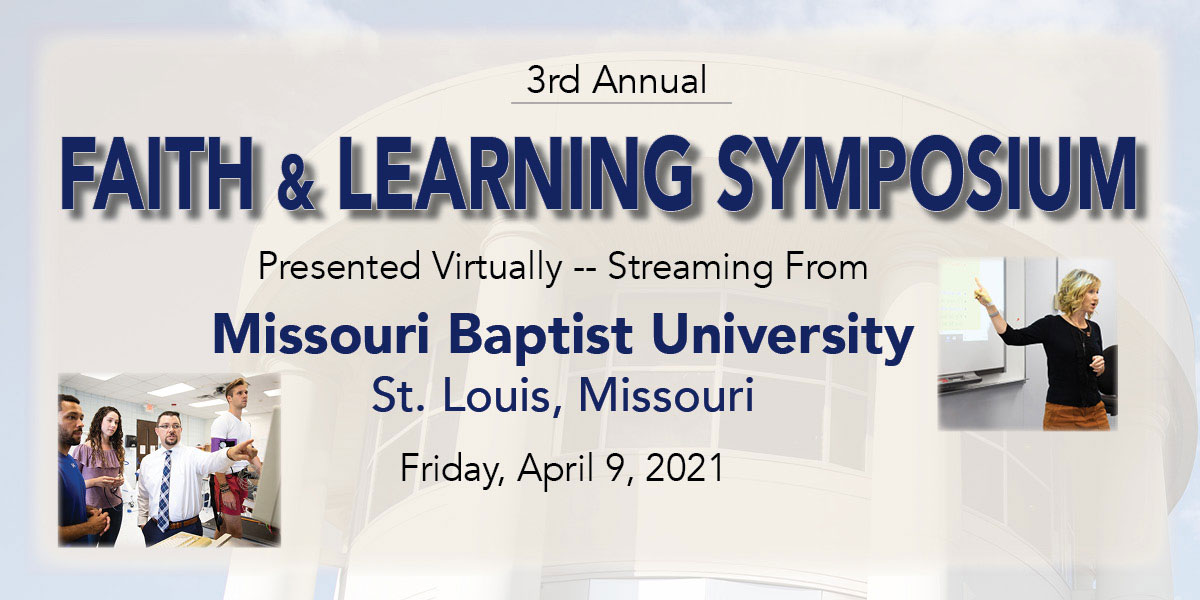
Click here for more information on the Faith and Learning Symposium, to register for the conference, or to submit a proposal for consideration to present at the conference. Proposals are accepted until April 4, 2021. Graphic by Dr. C. Allin Means
What is the value of a symposium that combines scholarship and research with our Christian
faith — a faith and learning symposium — in the modern era?
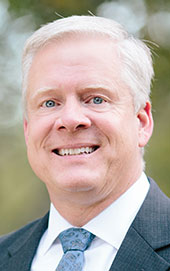
Dr. Keith Ross
President of MBU
Two of the most powerful forces on Earth for positive change are the Christian faith and education. To that end, the Faith and Learning Symposium at MBU provides a depth and breadth of resources for individuals to engage in scholarly learning and dialogue, thereby equipping them to inspire the next generation of leaders to think deeply about their faith, shape culture and reflect the gospel of Jesus Christ. This is truly God’s work in His world.
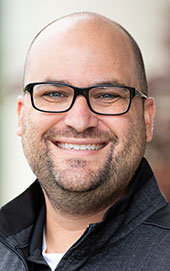
Dr. Matthew Easter
Associate Professor
Presenter
The Apostle Paul shares with us that for him to be a Christian is to be crucified with Christ such that he no longer lives and Christ lives within him. So my understanding then is therefore life is all about being dead to your old self and living as a disciple. And so I think when we put on a symposium like this we show people how to be a crucified follower of Jesus while also exploring something we really care about.
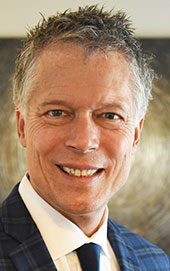
Dr. C. Allin Means
Professor
Symposium Organizer
The value of the Faith and Learning Symposium at MBU, and what makes our symposium unique within the academic community, is that as a Christian institution of higher learning we fully embrace the logical seamless connection between our faith and our research. In fact, it would be irrational to try to separate our Christian faith from our scholarship endeavors. The Faith and Learning Symposium boldly and unapologetically recognizes that logical connection, embracing it, encouraging it, and the end result is exactly what the entire research community is all about, and that is adding to the building blocks of knowledge.
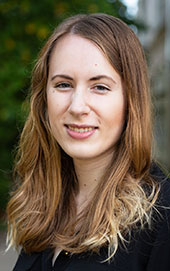
Rebecca Duke
Instructor of English
Presenter
I think in a world that tries to separate source from content it is so important to see how we cannot have content, we cannot have achievement or scholarship, without that true source. And to separate that separates us from the things that we are most passionate about. And so I’m excited to study a little bit more with those who are attending how it’s not a conflicting relationship, it’s actually one that is essential to work together. And I think even in the (research) I’m looking at right now, it’s not just an appreciation of the content but of the source itself, and how that really lifts and elevates that content that we study.
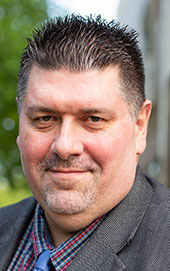
Guy Danhoff
Assistant Professor
Presenter
I think, No. 1, first and foremost, it has to be the fact that it is more relevant today than ever before. With the polarization in our country, for the polarization literally in the world, and when you look at all the things that are being advocated for and against, having this opportunity through a Faith and Learning Symposium is a way for Christian educators to best know how to take what we’re learning and apply it in the classroom under that Christian worldview.
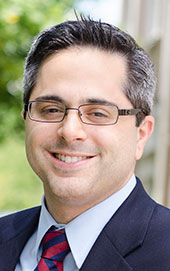
Dr. Matthew Bardowell
Assistant Professor
Presenter
The faith and learning aspect, really it’s just a way to be the most integrated kind of scholar that you can be when you’re saying everything that we learn, everything we learn that is true, belongs to God, it comes from God, and as we research and as we present, and if we can do that from a perspective of faith, then we’re more integrated scholars than when we have to divorce those two things or when we can’t talk about those two things as openly as we are able to at a place like Missouri Baptist University and the symposium that we offer.
____________________________________________________________________________________________________________________________________________